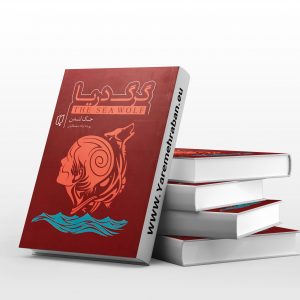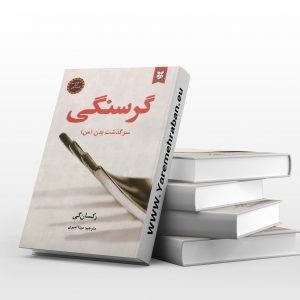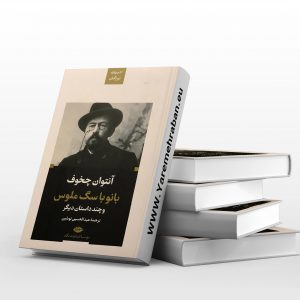Description
One Thousand and One Nights – The first book by Abdul Latif Tassoji is a collection of old Arabic, Persian and Indian legends narrated by Shahriar, the Persian king, narrated by Shahrzad, the daughter of a minister, and most of its adventures take place in Baghdad and Iran.
One Thousand and One Nights is one of the multinational literary texts in which women have a clear and active presence. The protagonist of the stories is a prudent and alert woman who, by cleverly telling stories, brings the authoritarian and tyrannical kingdom to the base of self-awareness.
The process of Shahrzad’s storytelling during One Thousand and One Nights and the comparison of the themes of the stories according to their morphology and components show that he has taken a very smart step in carrying out this humanitarian and self-sacrificing movement to save the lives of his sisters.
The study of stories based on the correlation of these structures with each other has helped a lot in understanding Shahrzad’s storytelling techniques. This research shows that the course of the stories of One Thousand and One Nights is a repetition of two parts of the story of the entry of One Thousand and One Nights or the same story of Shahriyar and his brother Shahzaman; But this projection takes on an evolutionary saturation; Thus, some stories reflect the betrayal of women (such as the traitorous women of Shahriyar and Shahzaman), while others tell stories that are one of the characters in anecdotes to save the lives of others (such as Shahrzad’s stories).
Women’s activism by creating strong, cunning and witch women in the cover of stories from the language of Shahrzad or storytellers creates a clever proportion in the process of storytelling and the situation of women gradually improves after a thousand and one nights. Even Shahrzad’s attitude and short conversations with Shahriar at the end of the stories have an intelligent process that conforms to the principles of psychology in the treatment of patients.
One Thousand and One Nights is the story of two brother princes, named Shahriar (or Shahrbaz) and Shah Zaman, who are betrayed by their wives. The king left the kingdom and went to his brother’s country, and the prince, in revenge for his wife’s betrayal, married a girl every night and ordered her to be killed in the morning. Until there is no more girl left in the city and the Shahriar minister, who had two daughters named Shahrzad and Donya Zad and was very worried about this issue, at Shahrzad’s suggestion, married her to the king.
That night, Shahrzad tells Shahriar that he has a sister who falls asleep with his stories every night and asks that his sister be brought to the palace that night to tell him a story for the last time. Dunya is born and Shahrzad starts storytelling, Shahriar, who was fascinated by this story, gives him time to hear the continuation of the story tomorrow night, and therefore postpones the killing of Shahrzad until later, and these stories continue every night …
“One Thousand and One Nights” is a name that has been known since the translation of Tasuji in the Qajar period and its old name was “Thousand Myths”. The first translation of One Thousand and One Nights into European languages was translated into French by Antoine Galan in the 16th century and published in 1704.
Sir Richard Burton published the first English translation of the book in 1885. Borges owed all his works to the Thousand and One Nights, and its influence on many world-renowned writers, including James Joyce, is undeniable. This book has been published in several languages and is one of the oldest and most valuable books, and it is the best relic of the ancient customs of the Orient.
Abdul Latif Tassoji was a writer, translator and one of the greats of Fath Ali Shah’s time. His literary knowledge in his time was so great that he modified the dictionary of conclusive argument. In 1259, by the order of Prince Bahman Mirza, he began translating One Thousand and One Nights from Arabic into Persian. Mohammad Ali Khan Isfahani, nicknamed Soroush, accompanied him in this way and in translating Arabic poems into Persian. Finally, in 1261, it was printed for the first time in the stone printing house of Tabriz for one thousand and one nights, and the same Tusuji version is still used today.
In a part of the book One Thousand and One Nights – First Book, we read:
Then the first beggar came and said: Lady, know that the reason for my shaving and blindness is that my father was the king of one city and my uncle was the king of another city. On the day my mother gives birth, my cousin will give birth to a son. Years later, we both grew up. I went to visit my uncle, my cousin, you hosted me every day and you were kind. One day we sat together and ate and drank.
The cousin said: I need you, you should not object. I swore not to object. He was getting up and once hid from me. When he came back, he brought a beautiful girl with him and told me to take her to a cemetery and a place in a crypt and wait for me. I could not resist, so I picked up the girl and took her there.
We were not yet seated when the cousin came and brought a bag containing plaster and an ax and a blue tassel. The cousin pointed to the girl. Meanwhile the girl went down the ladder. My cousin turned to me and said: Do good to me.
I said: Do whatever you want. He said: When I go down the ladder, throw a stone on the hatch and pour dirt on it. I’m going to prepare this place and that is what I needed from you. He said this and went down the ladder.
Index of the book
Introduction
The story of Shahrbaz and his brother Shahzaman
Peasant and donkey story
The story of the merchant and the witch
The story of the old man and the gazelle
The story of the second old man and his two dogs
The story of Pierre and Esther
The story of the hunter
The story of the king of Greece and the sage Royan
The story of King Sinbad
The story of the king and the king’s son
The rest of the hunter’s story
The story of the pregnancy with the girls
The story of the first beggar
The story of the second beggar
The story of the third beggar
The story of a lady with her two dogs
The story of the whipped girl
The story of the lying slave
The story of Nur al-Din and Shams al-Din
The story of a tailor, a Jew, a Jew, a steward and a Christian
Christian story
The story of Bazargan and Zarbajeh
The story of a Jewish doctor
The story of a lover and a lover
The story of the silent sheikh and his brothers
The story of Araj
The story of the past

The Impact of One Thousand and One Nights on Western Literature
Literary scholars believe; The writing style, narrative tone, and storytelling of The Thousand and One Nights have influenced the work of some prominent Western writers. People like James Joyce, the famous Irish writer whose book Ulysses is considered by many to be the greatest novel of the twentieth century.
Marcel Proust, a French essayist and author who, after writing his great book, “In Search of Lost Time”, is known as one of the most famous writers in the history of literature, and Jorge Luis Borges, an Argentine whose short stories make him famous. Worldwide delivery. Borges is one of the most prominent writers in Latin America.
The best translation of the book One Thousand and One Nights
Antoine Galan translated the book One Thousand and One Nights into French for about 300 years. Although Galan added stories such as Alibaba and Aladdin to the original text and did not remain faithful to the originality of the book, his translation attracted the attention of many countries to the fascinating stories of this work.
One hundred and fifty years later, Abdul Latif Tassoji, who was Malabashi in the Qajar government and court, translated the book into Persian by order of Mohammad Shah.
One hundred and sixty years after the first Persian translation of the novel One Thousand and One Nights, “Ebrahim Eghlidi” based on the Arabic text and English and French translations of the book, translated this work into Persian. This translation was published by Markaz Publishing. “I believe that language should change in the historical context, but if we want to use this language for translation, it must be close to the vernacular,” Eghlidi said of the work left by Tassoji Tabrizi. “That is why the translation of Abdul Latif Tasuji is the most brilliant translation of One Thousand and One Nights.”
“Mohammad Reza Marashipour” has also translated the book into Persian, which has been published by Niloufar Publications in four volumes. In the early 1980s, Hermes Publications edited the translation of Abdul Latif Tassoji and published the book in two volumes.
Translator of the Thousand and One Nights; A man from the Qajar court
Mullah Abdul Latif Tasuji, writer and translator, was born in the Tasuj section of Tabriz. He was a genius and a dervish by profession and lived during the reign of Fath Ali Shah Qajar and Mohammad Shah. In his youth, he learned Arabic and Persian literature and became a mujtahid. After Nasser al-Din Shah came to power, Tasuji became his son’s teacher and Malabashi and taught him for ten years. After that, he handed over his children to the Shah’s court and went to Karbala. He lived in Najaf for some time and died there.
The book “Definitive Argument”, which is a dictionary of Persian language, is known as one of the works of Abdul Latif Tasouji. While the new information obtained shows that this book is written by Mirza Mohammad Karim bin Mahdi Qoli Sarabi, the teacher of Mohammad Shah. One of the reasons why this work has been attributed to him for years is the writings of the “Queen of Spring Poets” in the book “Stylistics”, which has clearly attributed the authorship of this book to Tsuji Tabrizi.
Among the works translated by Abdul Latif Tassoji are the book “Kelileh wa Demneh”, the manuscript of which is not available, the book “Kashf al-Ghamma”, a book about the life and virtues of the fourteen infallibles, one copy of which is in the library of the Majlis, and the book One Thousand and One Nights. It is his most important and lasting work, he pointed out.
1- Introducing the book on YouTube
2- Introducing the book in Aparat














Reviews
There are no reviews yet.